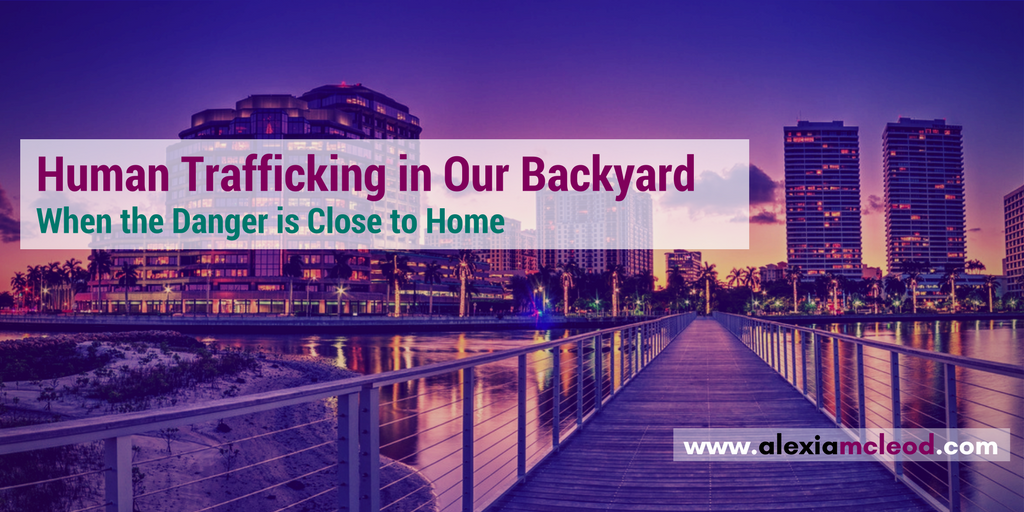
It is estimated that over four million people each year are sex trafficked worldwide in an industry that is worth tens of millions of dollars annually in the United States alone. Within the 50 states, Flordia is ranked 3rd Among other black market industries, human trafficking is rarely addressed as a societal issue; one we should all be aware is present in every crevice of our community. It is the human way to think “this is not an issue that will ever affect me”. Even though many are not included in an “at risk” population, it should be known that sex trafficking puts our safety and our humanity at risk. For this reason, it is important to be prepared, be aware, and be resilient.
We all know the feeling of “a close call”, whether it be barely dodging a reckless car on the freeway, surviving a lockdown situation in a school, knowing a plane crashed we very well could have been on, or having someone close to us put themselves at risk knowing there is nothing you can do about it. This is the pit in your stomach feeling, a rush of adrenaline, a human response to fear. It is this feeling we must be aware of when it comes to keeping ourselves safe on a day to day basis.
This warning is not meant to instill fear, but rather awareness, and in turn, resilience. Be aware of your surroundings. It is important to know the area you live in and the people you encounter on a regular basis. Listen to your instincts. If that man who has been hanging around at the corner store is acting odd when you come around, trust your gut and stay away. It is always better to be safe than sorry.
In situations where alcohol or drugs are present, stay in a group rather than alone, not just to avoid the horrors of sex trafficking, but to simply ensure personal safety at all time. Just as a person who is financially responsible is vigilant in making sure they are in possession of all their credit cards and checking their bank statements to prevent identity theft, you can also remain vigilant when it comes to personal safety. It may seem silly, but taking small measures such as carrying mace can not only give you a non violent form on self defense, but can actually create a feeling of security when walking alone at night should you be in this situation. Simple communication techniques can also provide added safety at any given time, day or night, by keeping in contact with those close to you, there will always be someone out there who knows your expected schedule and can seek help should something go wrong.
Again, the focus of human trafficking awareness month is not to create hyper-awareness of any and every risk to someone’s personal safety, but to introduce the reality of society today. Many aspects of daily life can prove to be perfectly safe, such as the internet, walking down the street at night, making a new friend at a bar, or using a dating service. However, it is important to do an inventory of the situations you are in and the people you come into contact with.
Many survivors of interpersonal violence, human trafficking victims included, share that they felt a gut feeling that something wasn’t right, but failed to act on those feelings after it was too late. As children we learn to be wary of strangers and society teaches us that fending for oneself before age 18 can put our safety at risk. When we learn to drive, we take safety courses to lessen the chances of becoming injured in an accident. Similarly, in school or work we often are dragged to the run of the mill sexual harassment, self defense, personal safety awareness seminars that although they may seem unnecessary, it is always better to be safe than sorry. Educating ourselves on how to keep ourselves and those around us safe can become priceless when we come directly or indirectly into contact with violence such as human trafficking. That close call feeling often comes into play when we hear news about someone we know or are close to has had their safety jeopardized.
Whether it be drug use, firearm possession, car accidents or minors running away, each and every one of us know someone who has given us the feeling of being close to a tragedy. With that said, it is not just safety to be educated on, but resilience as well. Resiliency comes in the form of community outreach to victims of crimes, law enforcement support in the prevention and prosecution of crimes that disrupt our society (human trafficking and sex work included). It is knowing what to do in a situation that threatens our safety and being able to process the aftermath of close calls or actual incidents. Resiliency lies in being involved, directly or indirectly with preventing the growth of black market industries. Each person who does their part through education, awareness, collaboration and resiliency is preventing human trafficking one step at a time and in today’s world, safety and awareness are essential to our society’s well-being.
Now that you have understood the depth of this issue, you might be thinking “How Do I Help?” one way you can do it is by joining me in supporting a local organization, called Place of Hope by donating to this fundraising campaign towards their Human Trafficking Recovery Program. Every dollar that you donated will directly go towards Place of Hope in providing the necessary tools for the survivors of human trafficking here at home. To Donate, you can do so here: One Life Campaign for Place of Hope
